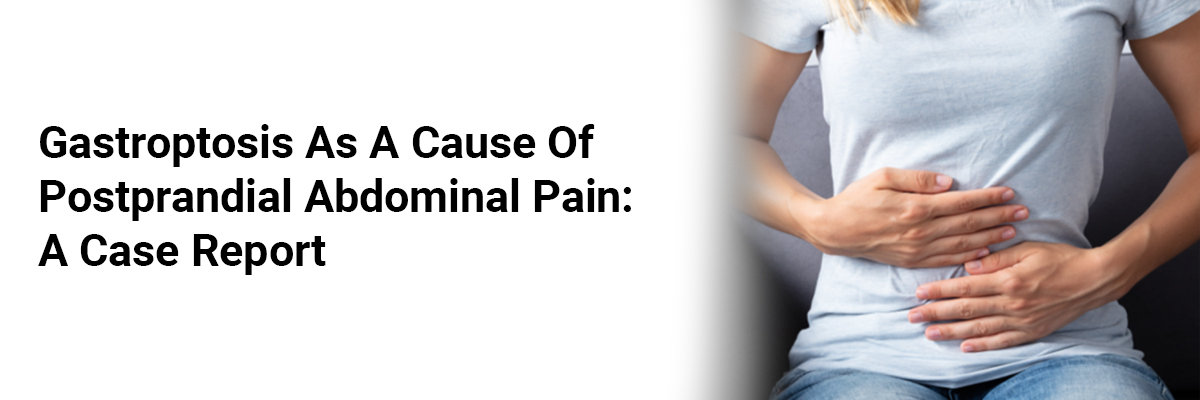
 IJCP Editorial Team
IJCP Editorial Team
Gastroptosis as a Cause of Postprandial Abdominal Pain: A Case Report
The present report describes a case of a 17-year-old female patient who was admitted to the hospital for evaluation of chronic abdominal pain. The patient had a history of Graves' disease and was undergoing thiamazole therapy for hyperthyroidism symptoms, which had improved. She also had atopic dermatitis and allergies to several inhaled allergens, including trimethoprim-sulfamethoxazole.
The patient's current complaint of epigastric pain had been gradually worsening over the past two years, particularly after meals and in the upright position. She did not report any diarrhea or constipation. Notably, she had experienced a significant weight loss of 6 kg over the previous six months, possibly due to changes in her eating habits and increased dietary fiber consumption. Thyroid screening results were within normal range, indicating euthyreosis.
Initial laboratory tests revealed no abnormalities and fecal calprotectin levels ruled out inflammatory bowel disease. Imaging studies, including abdominal ultrasound and chest X-ray, were unremarkable. The patient exhibited symptoms suggestive of depression, warranting further psychological care.
An upper gastrointestinal X-ray study using barium was performed, which revealed gastroptosis, with the stomach displaced downward and positioned entirely under the diaphragm in the standing position. Abnormal gastric emptying was also observed during the procedure, with no barium reaching the duodenum. However, the contrast medium flowed unimpeded in the supine position, suggesting a normal function of the duodenum and small intestine.
Based on the patient's symptoms and imaging findings, the diagnosis of gastroptosis with abnormal gastric emptying exacerbated by weight loss was made. Cisapride therapy was ruled out due to the patient's prolonged QTc interval, and itopride was prescribed instead. An appropriate meal plan was recommended, emphasizing slow consumption and weight gain through five meals per day. The patient was discharged with outpatient follow-up.
Six months later, the patient was readmitted due to recurrent weight loss and epigastric pain. On admission, her weight was 36.7 kg, resulting in a BMI of 13.3 kg/m2. Amenorrhea was also noted. Extensive laboratory testing revealed signs of hypogonadotropic hypogonadism, including low estradiol levels, elevated cortisol, and hyperprolactinemia. A comprehensive psychiatric assessment led to a diagnosis of anorexia nervosa (AN). Treatment involved psychotherapy, anti-depression therapy, a high-calorie diet, and a resting lifestyle. Despite a weight gain of 4.2 kg, the patient continued to experience persistent epigastric pain.
Further investigation revealed that the patient had not been adhering to the prescribed prokinetic drugs. She currently remains under outpatient care, with her weight stabilized. Continued monitoring and management are essential for her ongoing recovery.
Staszewska A, Jarzumbek A, Saran A, Gierak-Firszt S, Kwiecien J. Postprandial Abdominal Pain Caused by Gastroptosis—A Case Report. Children. 2023; 10(1):116. https://doi.org/10.3390/children10010116

IJCP Editorial Team
Comprising seasoned professionals and experts from the medical field, the IJCP editorial team is dedicated to delivering timely and accurate content and thriving to provide attention-grabbing information for the readers. What sets them apart are their diverse expertise, spanning academia, research, and clinical practice, and their dedication to upholding the highest standards of quality and integrity. With a wealth of experience and a commitment to excellence, the IJCP editorial team strives to provide valuable perspectives, the latest trends, and in-depth analyses across various medical domains, all in a way that keeps you interested and engaged.




















Please login to comment on this article